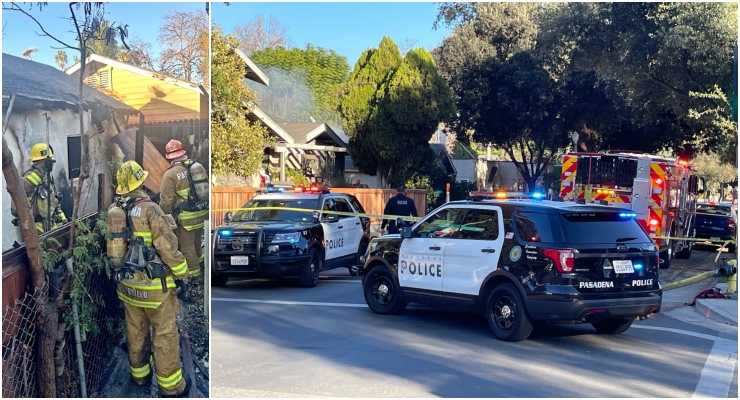
Antiquated computer systems prevented the Pasadena Police Department from early participation in the Race and Identity Profiling Act (RIPA).
Under RIPA, law enforcement agencies are required to collect information on the race, gender and age of people pulled over in traffic stops. All departments are required to begin collecting the data in 2023.
“There were conversations with Chief Sanchez about starting early,” said Pasadena Police Chief John Perez, “I wanted to see if it was possible so I put together a committee with internal police personnel, including Deputy Chief Cheryl Moody. First, we studied it and got some education. In the second stage, we tested it and talked to other organizations like Long Beach and San Diego. We really went through our efforts to look at this thing, but in the end our [computer] system is not capable, [it’s an] old system that soon won’t have any support. It’s like an old Pinto on the freeway.”
The United Crime Reporting System currently in use by the Pasadena Police Department will be phased out at the end of the year and be replaced by the National Incident-Based Reporting System (NIBRS) which can provide more data on contacts between police officers and local residents.
The city has already received the funding for the new system, and implicit bias training is ongoing.
“We want our officers to be right on the money,” Perez said. “We have been funded, and will soon put out the request for proposals.”
Currently the state’s eight largest law enforcement agencies are required to provide information under RIPA: the California Highway Patrol, the Los Angeles Police Department, the Los Angeles County Sheriff’s Department, the San Bernardino County Sheriff’s Department, the Riverside County Sheriff’s Department, the San Diego County Sheriff’s Department, the San Diego Police Department and the San Francisco Police Department.
Between April 1, 2018 and April 1 of last year, those agencies stopped 1.8 million people. Hispanics were stopped 39.8 percent of the time, followed by whites who were pulled over 33.2 percent of the time and African-Americans were pulled over 15.2 percent of the time.
The most commonly reported reason for a stop across all racial/ethnic groups was traffic violations, followed by reasonable suspicion. A higher percentage of African-American drivers were stopped for reasonable suspicion than any other racial identity group and African Americans were searched 2.9 times more than white drivers. Overall, 9.9 percent of stopped individuals were subject to a person or property search,
However when white motorists were searched police found contraband on them 24 percent of the time, according to the report.
“Why doesn’t PPD halt its gang unit from harassing drivers of color — a practice of many years — by stopping and searching them more frequently than white drivers, and finding less contraband than with white drivers?” said Kris Ockerhauser, longtime civil rights activist and Board Member of the ACLU Pasadena/Foothills Chapter.
“A Stanford Open Policing Data report last year analyzed nearly 100 million cases in the U.S. and found that black drivers were about 20 percent more likely than whites to be pulled over. And remember, last year Chris Ballew attorney John Burton used PPD’s own statistics to show racial profiling in traffic stops in Pasadena,” Ockerhauser said. “Has the city’s official police department oversight body, the Public Safety Committee, asked if there is any evidence these stops are similar to the current LAPD gang division scandal of excessive stops in minority neighborhoods and falsification of stops records in order to meet department quotas?”
The law updates California’s definition of racial and identity profiling to be in line with federal recommendations by including other demographic characteristics, such as gender and sexual orientation, requires California law enforcement agencies uniformly collect and report data on stops, frisks, and other interactions with the communities they serve and establishes an advisory board to analyze stop data and develop recommendations to address problems with disparate policing where they exist.
Shirley Weber (D-San Diego) who authored the act called it “The first step toward not only understanding the problem of racial profiling but also toward formulating policies to reduce the practice and its devastating consequences. California is going in a new direction on this issue; hopefully, this will set an example for other states.”
















